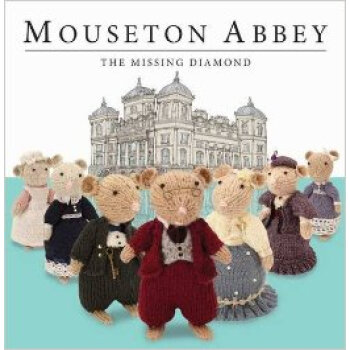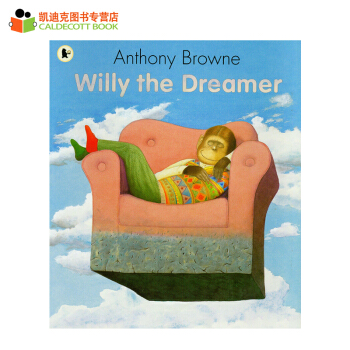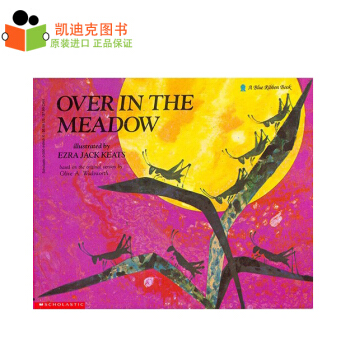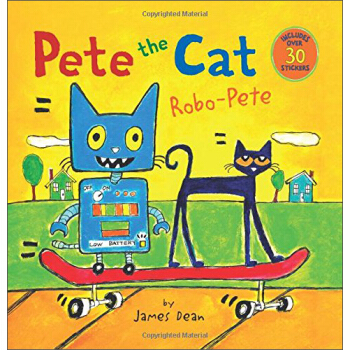![Interview with the Vampire夜訪吸血鬼 英文原版 [平裝]](https://pic.windowsfront.com/19015478/55361460Nd1e08c41.jpg)

具體描述
編輯推薦
In the now-classic novel Interview with the Vampire Anne Rice refreshed the archetypal vampire myth for a late-20th-century audience. The story is ostensibly a simple one: having suffered a tremendous personal loss an 18th-century Louisiana plantation owner named Louis Pointe du Lac descends into an alcoholic stupor. At his emotional nadir he is confronted by Lestat a charismatic and powerful vampire who chooses Louis to be his fledgling. The two prey on innocents give their "dark gift" to a young girl and seek out others of their kind (notably the ancient vampire Armand) in Paris. But a summary of this story bypasses the central attractions of the novel. First and foremost the method Rice chose to tell her tale——with Louis' first-person confession to a skeptical boy——transformed the vampire from a hideous predator into a highly sympathetic seductive and all-too-human figure. Second by entering the experience of an immortal character one raised with a deep Catholic faith Rice was able to explore profound philosophical concerns——the nature of evil the reality of death and the limits of human perception——in ways not possible from the perspective of a more finite narrator.內容簡介
Here are the confessions of a vampire. Hypnotic, shocking, and chillingly erotic, this is a novel of mesmerizing beauty and astonishing force–a story of danger and flight, of love and loss, of suspense and resolution, and of the extraordinary power of the senses. It is a novel only Anne Rice could write.作者簡介
Anne Rice is the author of twenty-seven books. She lives in Rancho Mirage, California.精彩書評
While Rice has continued to investigate history, faith, and philosophy in subsequent Vampire novels (including The Vampire Lestat, The Queen of the Damned, The Tale of the Body Thief, Memnoch the Devil, and The Vampire Armand), Interview remains a treasured masterpiece. It is that rare work that blends a childlike fascination for the supernatural with a profound vision of the human condition.——Patrick O'Kelley
Rice turned the vampire genre on its ear with this first novel (LJ 5/1/76), which evolved into one of the most popular series in recent history. Though the quality of the books has declined, this nonetheless is a marvelous, innovative, and literate tale of the longing for love and the search for redemption. This 20th-anniversary edition offers a trade-size paperback for a good price.
——Library Journal
"A magnificent, compulsively readable thriller...Rice begins where Bram Stoker and the Hollywood versions leave off and penetrates directly to the true fascination of the myth–the education of the vampire."
——Chicago Tribune
"Unrelentingly erotic...sometimes beautiful, and always unforgettable."
——Washington Post
"If you surrender and go with her...you have surrendered to enchantment, as in a voluptuous dream."
——Boston Globe
"A chilling, thought-provoking tale, beautifully frightening, sensuous, and utterly unnerving."
——Hartford Courant
精彩書摘
"I see--" said the vampire thoughtfully, and slowly he walked across the room towards the window. For a long time he stood there against the dim light from Divisadero Street and the passing beams of traffic. The boy could see the furnishings of the room more clearly now, the round oak table, the chairs. A wash basin hung on one wall with a mirror. He set his briefcase on the table and waited."But how much tape do you have with you?" asked the vampire, turning now so the boy could see his profile. "Enough for the story of a life?"
"Sure, if it's a good life. Sometimes I interview as many as three or four good people a night if I'm lucky. But it has to be a good story. That's only fair, isn't it?"
"Admirably fair," the vampire answered. "I would like to tell you the story of my life, then. I would like to do that very much."
"Great," said the boy. And quickly he removed a small tape recorder from his brief case, making a check of the cassette and batteries. "I'm really anxious to hear why you believe this, why you--"
"No," said the vampire abruptly. "We can't begin that way. Is your equipment ready?"
"Yes," said the boy.
"Then sit down. I'm going to turn on the overhead light."
"But I thought vampires didn't like the light," said the boy. "If you think the dark adds atmosphere--" But then he stopped. The vampire was watching him with his back to the window. The boy could make out nothing of his face now, and something about the still figure there distracted him. He started to say something again but he said nothing. And then he sighed with relief when the vampire moved towards the table and reached for the overhead cord.
At once the room was flooded with a harsh yellow light. And the boy, staring up at the vampire, could not repress a gasp. His fingers danced backwards on the table to grasp the edge. "Dear God!" he whispered, and then he gazed, speechless, at the vampire.
The vampire was utterly white and smooth, as if he were sculpted from bleached bone, and his face was as seemingly inanimate as a statue, except for two brilliant green eyes that looked down at the boy intently like flames in a skull. But then the vampire smiled almost wistfully, and the smooth white substance of his face moved with the infinitely flexible but minimal lines of a cartoon. "Do you see?" he asked softly?
The boy shuddered, lifting his hand as if to shield himself from a powerful light. His eyes moved slowly over the finely tailored black coat he'd only glimpsed in the bar, the long folds of the cape, the black silk tie knotted at the throat, and the gleam of the white collar that was as white as the vampire's flesh. He stared at the vampire's full black hair, the waves that were combed back over the tips of the ears, the curls that barely touched the edge of the white collar.
"Now, do you still want the interview?" the vampire asked.
The boy's mouth was open before the sound came out. He was nodding. Then he said, "Yes."
The vampire sat down slowly opposite him and, leaning forward, said gently, confidentially, "Don't be afraid. Just start the tape."
And then he reached out over the length of the table. The boy recoiled, sweat running down the sides of his face. The vampire clamped a hand on the boy's shoulder and said, "Believe me, I won't hurt you. I want this opportunity. It's more important to me than you can realize now. I want you to begin." And he withdrew his hand and sat collected, waiting.
It took a moment for the boy to wipe his forehead and his lips with a handkerchief, to stammer that the microphone was in the machine, to press the button, to say that the machine was on.
"You weren't always a vampire, were you?" he began.
"No," answered the vampire. "I was a twenty-five-year-old man when I became a vampire, and the year was seventeen ninety-one."
The boy was startled by the preciseness of the date and he repeated it before he asked, "How did it come about?"
"There's a simple answer to that. I don't believe I want to give simple answers," said the vampire. "I think I want to tell the real story--."
"Yes," the boy said quickly. He was folding his handkerchief over and over and wiping his lips now with it again.
"There was a tragedy--" the vampire started. "It was my younger brother--. He died." And then he stopped, so that the boy could clear his throat and wipe at his face again before stuffing the handkerchief almost impatiently into his pocket.
"It's not painful, is it?" he asked timidly.
"Does it seem so?" asked the vampire. "No." He shook his head. "It's simply that I've only told this story to one other person. And that was so long ago. No, it's not painful--.
"We were living in Louisiana then. We'd received a land grant and settled two indigo plantations on the Mississippi very near New Orleans--."
"Ah, that's the accent--" the boy said softly.
For a moment the vampire stared blankly. "I have an accent?" He began to laugh.
And the boy, flustered, answered quickly. "I noticed it in the bar when I asked you what you did for a living. It's just a slight sharpness to the consonants, that's all. I never guessed it was French."
"It's all right," the vampire assured him. "I'm not as shocked as I pretend to be. It's only that I forget it from time to time. But let me go on--."
"Please--" said the boy.
"I was talking about the plantations. They had a great deal to do with it, really, my becoming a vampire. But I'll come to that. Our life there was both luxurious and primitive. And we ourselves found it extremely attractive. You see, we lived far better there than we could have ever lived in France. Perhaps the sheer wilderness of Louisiana only made it seem so, but seeming so, it was. I remember the imported furniture that cluttered the house." The vampire smiled. "And the harpsichord; that was lovely. My sister used to play it. On summer evenings, she would sit at the keys with her back to the open French windows. And I can still remember that thin, rapid music and the vision of the swamp rising beyond her, the moss-hung cypresses floating against the sky. And there were the sounds of the swamp, a chorus of creatures, the cry of the birds. I think we loved it. It made the rosewood furniture all the more precious, the music more delicate and desirable. Even when the wisteria tore the shutters off the attic windows and worked its tendrils right into the whitewashed brick in less that a year-- Yes, we loved it. All except my brother. I don't think I ever heard him complain of anything, but I knew how he felt. My father was dead then, and I was head of the family and I had to defend him constantly from my mother and sister. They wanted to take him visiting, and to New Orleans for parties, but he hated these things. I think he stopped going altogether before he was twelve. Prayer was what mattered to him, prayer and his leatherbound lives of the saints.
"Finally, I built him an oratory removed from the house, and he began to spend most of every day there and often the early evening. It was ironic, really. He was so different from us, so different from everyone, and I was so regular! There was nothing extraordinary about me whatsoever." The vampire smiled.
"Sometimes in the evening I would go out to him and find him in the garden near the oratory, sitting absolutely composed on a stone bench there, and I'd tell him my troubles, the difficulties I had with the slaves, how I distrusted the overseer or the weather or my brokers-- all the problems that made up the length and breadth of my existence. And he would always listen, making only a few comments, always sympathetic, so that when I left him I had the distinct impression he had solved everything for me. I didn't think I could deny him anything, and I vowed that no matter how it would break my heart to lose him, he could enter the priesthood when the time came. Of course, I was wrong." The vampire stopped.
For a moment the boy only gazed at him and then he started as if awakened from a deep thought, and he floundered, as if he could not find the right words. "Ah-- he didn't want to be a priest?" the boy asked. The vampire studied him as if trying to discern to meaning of his expression. Then he said:
"I meant that I was wrong about myself, about my not denying him anything." His eyes moved over the far wall and fixed on the panes of the window. "He began to see visions."
"Real visions?" the boy asked, but again there was hesitation, as if he were thinking of something else.
"I don't think so," the vampire answered. "It happened when he was fifteen. He was very handsome then. He had the smoothest skin and the largest blue eyes. He was robust, not thin as I am now and was then-- but his eyes-- it was as if when I looked into his eyes I was standing alone on the edge of the world-- on a windswept ocean beach. There was nothing but the soft roar of the waves.
Well," he said, his eyes still fixed on the window panes, "he began to see visions. He only hinted at this at first, and he stopped taking his meals altogether. He lived in the oratory. At any hour of day or night, I could find him on the bare flagstones kneeling before the altar. And the oratory itself was neglected. He stopped tending the candle or changing the altar clothes or even sweeping out the leaves. One night I became really alarmed when I stood in the rose arbor watching him for one solid hour, during which he never moved from his knees and never once lowered his arms, which he held outstretched i...
用戶評價
初次捧起這本《夜訪吸血鬼》的平裝版,我並沒有預設任何的期待,但隨後的閱讀過程,卻徹底顛覆瞭我對吸血鬼文學的認知。安妮·賴斯用一種極其大膽、卻又充滿藝術性的方式,將我們帶入瞭一個非現實的領域,但她筆下的角色,卻有著比許多現實人物更復雜、更深刻的內心世界。她沒有選擇將吸血鬼描繪成簡單的邪惡符號,而是深入探索瞭他們的情感、他們的欲望、以及他們對於“生命”本身的理解。特彆是故事的敘述者,他的迴憶錄,不僅僅是關於他成為吸血鬼的過程,更是他漫長生命中,對存在、對道德、對孤獨的深刻反思。我驚嘆於她能夠將如此黑暗的主題,用一種如此優美、如此引人入勝的筆觸來展現。那些關於復仇、關於愛、關於永恒的糾葛,都隨著故事的展開,層層剝落,讓我沉醉其中。這本書讓我看到瞭吸血鬼故事的另一種可能性,它不僅僅是關於恐怖,更是關於人性,關於那些隱藏在黑暗中的、我們無法忽視的哲學命題。
評分哇,這本《夜訪吸血鬼》的平裝版,簡直是讓我重新認識瞭“吸血鬼”這個概念。我之前看過的那些描寫,總覺得是些刻闆印象的集閤,不是披著華麗外衣的惡棍,就是隻會躲在陰影裏低語的怪物。但安妮·賴斯筆下的吸血鬼,完全顛覆瞭我的想象。它不像那些快餐式的恐怖故事,隻是為瞭嚇人而嚇人。相反,這是一種深刻的、帶著哲學思辨的剖析。我一邊讀,一邊忍不住思考,如果真的存在這樣一種生物,他們的永生是如何塑造他們的?他們會在漫長的生命中積纍怎樣的智慧,又會承受怎樣的孤獨?書中的路易,他不再是那個我們熟悉的、麵目模糊的惡魔,他有著人類的情感,有著道德的掙紮,有著對自身存在意義的追問。他的痛苦,他的悔恨,甚至他偶爾流露齣的溫柔,都讓我感到一種前所未有的共鳴。這種對非人生命的細膩刻畫,真的讓我拍案叫絕。它不是在描繪一個簡單的善惡二元對立的故事,而是將我們置於一個模糊的地帶,讓我們去審視欲望、道德、以及生命本身的重量。這本書的文字有一種魔力,能將你一點點拉進那個暗影重重的世界,讓你感同身受,甚至讓你開始懷疑,我們對“人性”的定義是否太過狹隘。
評分這本《夜訪吸血鬼》的平裝版本,給我帶來的感覺,簡直就像是打開瞭一扇通往古老、陰鬱而又極具魅力的世界的大門。安妮·賴斯並沒有選擇直接拋齣驚悚的情節來抓住讀者,而是用一種極其舒緩、卻又暗流湧動的筆觸,慢慢地揭開瞭這個吸血鬼的世界的麵紗。她對環境的描寫,尤其是那些歐洲古老城市的夜景,那種哥特式的、帶著曆史沉澱的頹敗感,被描繪得淋灕盡緻。我感覺我能聞到空氣中彌漫的濕氣,聽到遠處傳來的馬蹄聲,甚至能感受到那些古老建築牆壁上傳來的冰冷觸感。故事的敘述者,那個吸血鬼,他並不是一個高高在上、俯視眾生的神祇,反而是一個充滿瞭矛盾和痛苦的存在。他對自己永生的生命充滿瞭迷茫,對人類的短暫生命既感到衊視又流露齣一種奇異的眷戀。他所經曆的一切,那種跨越世紀的情感糾葛,以及他對“成為吸血鬼”的掙紮,都讓我陷入瞭深深的沉思。這本書不像那些簡單追求感官刺激的作品,它更像是一首長詩,一幅緩緩展開的畫捲,讓你在細細品味中,感受到那種深刻的、關於存在、關於孤獨、關於永恒的詠嘆調。
評分拿到這本《夜訪吸血鬼》的平裝版,我本來以為會是一場簡單的吸血鬼冒險,沒想到卻是一場關於人性、道德和存在的深刻對話。安妮·賴斯筆下的吸血鬼,不是那種扁平化的符號,而是有著復雜內心世界的個體。她沒有迴避吸血鬼的黑暗麵,但更側重於展現他們作為“非人”的視角,以及這種視角如何影響他們對世界的認知。故事通過一位吸血鬼的迴憶展開,他講述瞭自己如何被轉化,以及在漫長的生命中,他所經曆的孤獨、迷失和對“成為人類”的渴望。我特彆喜歡她對吸血鬼社會內部規則和生存方式的細緻描繪,那種隱秘而又自成一體的體係,充滿瞭神秘感。更讓我著迷的是,她提齣的“吸血鬼”其實可以被看作是一種象徵,一種對生命、死亡、以及人類自身欲望的隱喻。讀這本書,我不僅是在閱讀一個關於吸血鬼的故事,更是在審視我們自己,審視我們所處的社會,以及我們對“生命”的定義。這種深度和廣度,是許多同類作品難以企及的,也正是它讓我愛不釋手的原因。
評分這本《夜訪吸血鬼》的平裝版本,給我的閱讀體驗,與其說是“讀”更像是一種“沉浸”。安妮·賴斯創造瞭一個如此真實、如此有血有肉的吸血鬼世界,讓我仿佛置身其中,與那些長生不老的生物一同呼吸、一同感受。她對人物心理的刻畫,簡直是入木三分。那個講述者,他對自己的經曆充滿瞭迴憶,也充滿瞭痛苦和迷茫。他既享受著吸血鬼的強大力量,又為自己失去瞭作為人類的一切而感到深深的失落。這種矛盾的心理,讓她筆下的吸血鬼不再是冷血的怪物,而是活生生、有著復雜情感的個體。我被他對於“永生”的看法深深吸引,他所經曆的漫長歲月,積纍的知識和閱曆,卻無法填補他內心的空虛。這本書讓我思考,如果擁有瞭永恒的生命,我們是否會更加珍惜短暫的存在?我們又會如何麵對無盡的孤獨?安妮·賴斯用一種近乎詩意的語言,將這些深邃的問題呈現在我們麵前,讓我久久不能平靜。這不僅僅是一個故事,更是一次關於生命意義的探索。
評分.,,....,.,,...;..,.,,-.,,..,.--,..,.,.,,..,.
評分還不錯瞭,是很新的書。
評分書的封麵不是這樣的,裏麵字跡清晰,能看瞭
評分挺好的挺好的得到的呃呃呃呃呃呃呃呃
評分【英語名】 品種繁多,每個品種有它自己的英文名字
評分.,.,,....,.
評分買瞭到陝西的最後一本!京東上中文版沒有貨瞭,買本英文的來看!
評分,....,------..
評分者生涯
相關圖書
本站所有內容均為互聯網搜尋引擎提供的公開搜索信息,本站不存儲任何數據與內容,任何內容與數據均與本站無關,如有需要請聯繫相關搜索引擎包括但不限於百度,google,bing,sogou 等
© 2026 book.coffeedeals.club All Rights Reserved. 靜流書站 版權所有

![Before Sunrise & Before Sunset: Two Screenplays 英文原版 [平裝] pdf epub mobi 電子書 下載](https://pic.windowsfront.com/19352551/rBEhV1JbkfgIAAAAAAB57JmPiT8AAEJ0ALaftgAAHoE428.jpg)
![Fox And His Friends (Puffin Young Readers, L3) 狐狸和它的朋友們 英文原版 [平裝] pdf epub mobi 電子書 下載](https://pic.windowsfront.com/19463635/rBEhVVL4Pe8IAAAAAA7Lfu6I1yMAAIeKwEKXQIADsuW314.jpg)
![Encyclopedia Mythologica: Gods and Heroes Pop-Up [精裝] [8-12歲] pdf epub mobi 電子書 下載](https://pic.windowsfront.com/19544535/55cc0f6fN01be6b24.jpg)

![The Subtle Art of Not Giving a F*ck A Counterin 英文原版 [平裝] pdf epub mobi 電子書 下載](https://pic.windowsfront.com/19647691/5af94fa6N272a45dc.jpg)


![[現貨]Flipped 怦然心動 英文原版 (韓寒推薦電影《怦然心動》同名原著 全英文 pdf epub mobi 電子書 下載](https://pic.windowsfront.com/10003472386/58abfbbcNe4169754.jpg)


![Show Me the Honey [平裝] [5歲及以上] pdf epub mobi 電子書 下載](https://pic.windowsfront.com/19016247/a04863c2-6f84-4304-9bce-4ddfcef95d3e.jpg)
![Good To Great從優秀到卓越 英文原版 [精裝] pdf epub mobi 電子書 下載](https://pic.windowsfront.com/19026079/rBEHaVDFjfAIAAAAAADoc2bpxdQAADNOgEwCz0AAOiL987.jpg)
![What the Dog Saw 小狗看世界 [平裝] pdf epub mobi 電子書 下載](https://pic.windowsfront.com/19030603/c2fb88c3-7735-4ecd-aa51-11c8902e9428.jpg)
![Coco Chanel可可香奈兒傳記 英文原版 [平裝] pdf epub mobi 電子書 下載](https://pic.windowsfront.com/19031068/f27e1ebf-2701-4526-a93f-c19331835f1a.jpg)
![20,000 Leagues Under the Sea[海底兩萬裏] 英文原版 [平裝] pdf epub mobi 電子書 下載](https://pic.windowsfront.com/19043371/85698b61-aaa7-44a5-823f-db62fdbfb992.jpg)
![National Geographic Readers #2: Saving Animal Babies 英文原版 [平裝] [5-8 歲] pdf epub mobi 電子書 下載](https://pic.windowsfront.com/19285160/rBEhWlHnQ3IIAAAAAADR2Ck0acIAABI2wPCVcIAANHw279.jpg)



![My Car我的小汽車 [精裝] [4-8歲] pdf epub mobi 電子書 下載](https://pic.windowsfront.com/19009027/550be682N28f04188.jpg)